Parker Clay is a luxury lifestyle brand with goods designed in Santa Barbara, California and made in Ethiopia, where they are creating opportunities for women to become economically independent, all the while crafting gorgeous leather and hand woven products.
Brittany and Ian Bentley travelled to Ethiopia and worked with organizations that empowered underprivileged women through skill development, and eventually decided to create Parker Clay with the intention of helping these same women gain financial stability.
All of Parker Clay’s products are sustainable and made with some of the finest leather in the world.
In Episode 161 of the Disruptors for Good podcast, we speak with Ian Bentley, Founder & CEO of Parker Clay, on building a powerhouse ethical fashion brand and becoming one of the largest employers of women in Ethiopia.
For more inspiring stories like Parker Clay, check out the Causeartist Disruptors for GOOD podcast.
Below is a Q&A with Parker Clay founders Brittany and Ian Bentley.
Q: Tell us the beautiful story behind the creation of Parker Clay?
A: We first traveled to Ethiopia in 2011 to adopt our daughter, and eventually moved to the capital city of Addis Ababa one year later.
While living there, we had the fortune of spending time with organizations working to empower women emerging from the commercial sex industry.
Meeting these women and witnessing the amazing, transformative work these organizations were doing deeply moved us.
While living in Ethiopia, I was looking for a birthday gift for Brittany and found an incredible leather bag.
The artisans’ craftsmanship was beautiful, and we learned this leather was not only ethically sourced, but some of the highest quality in the world.
With this leather in mind, we saw our opportunity to empower vulnerable women through enterprise.
From that chance birthday gift, Parker Clay was born as a luxury lifestyle brand that hand selects the highest quality leather to make timeless products by way of age-old traditional craftsmanship, all while creating opportunities for vulnerable women to become economically independent.
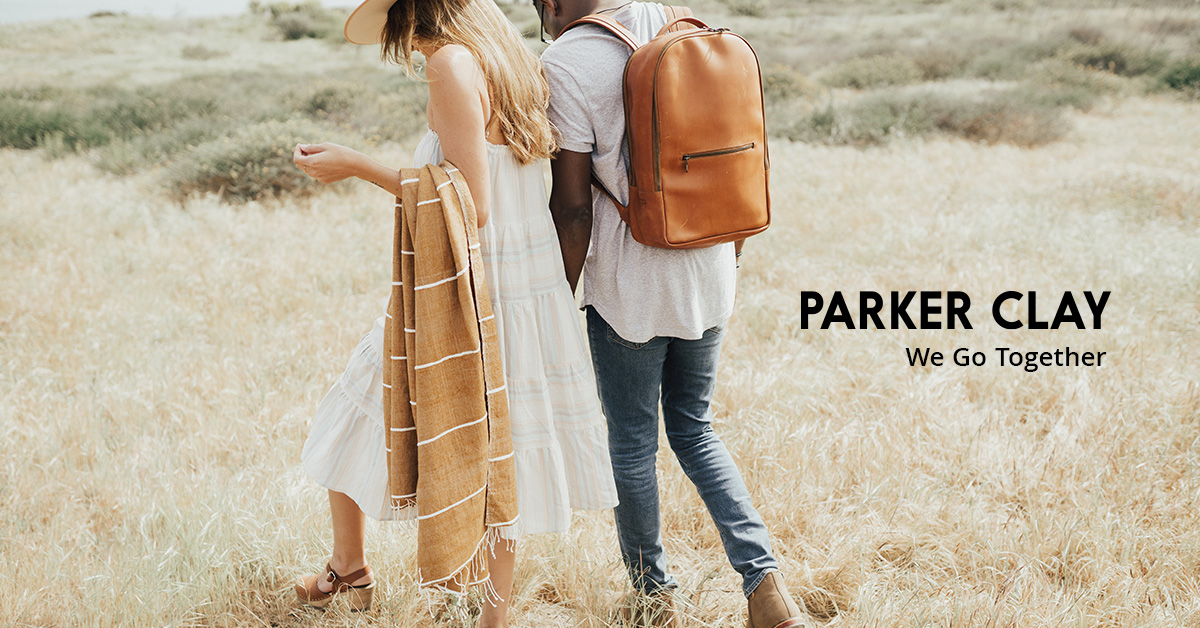

Q: You and your family moved from the United States to Ethiopia during the birth of your company, how did this impact the creation of Parker Clay?
A: Parker Clay could only have ever been made in Ethiopia. Brittany and I weren’t looking to start a business when we moved there, and we knew nothing very little about leather goods!
We really see ourselves as passionate people who care about others and feel compelled to act.
In Ethiopia, we found we cared deeply for the vulnerable women we met through our work with non-profits.
As we asked Ethiopians what more we could do to help, they kept urging us not for money, but for opportunities.
From there, we connected Ethiopia’s rich tradition of leather working with our business experience, inviting in wonderful Ethiopians we met to help us start this company.
The designs and colors are inspired by Ethiopia, and influenced by the ideas of our team of artisan.
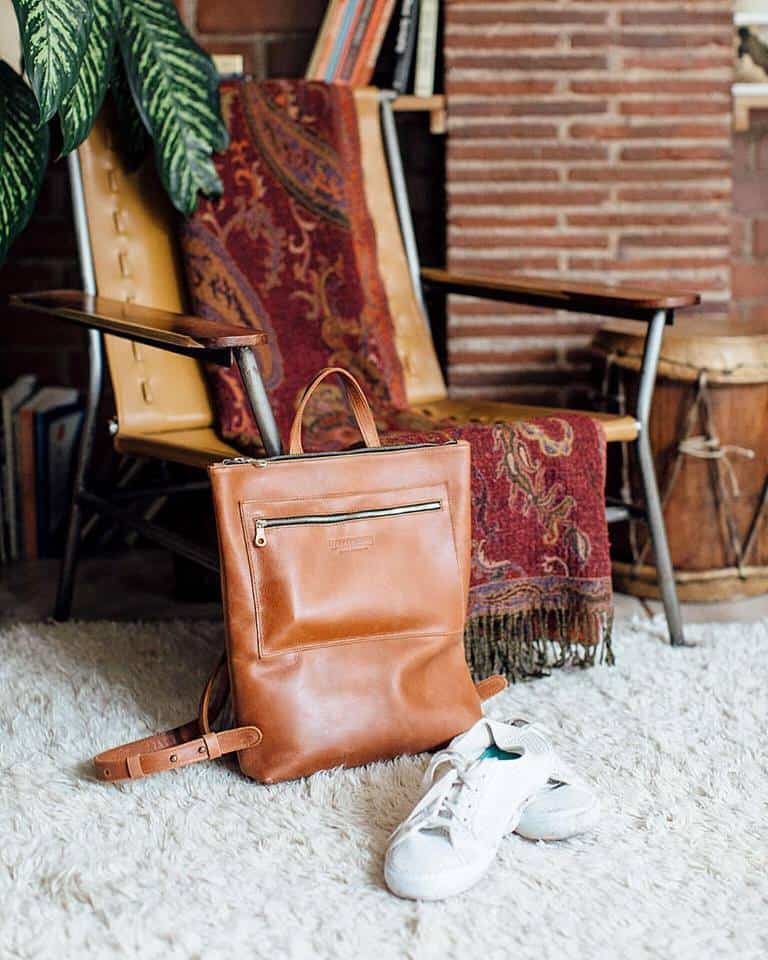
Q: Can you tell us what it has been like to partner with the non– profit organization, Ellilta— Women at Risk?
A: Cherry, the founder of Ellilta – Women at Risk, is one of my personal heroes.
During a tough year of post-college unemployment, she developed a soft heart for women working in the commercial sex industry, who she learned had often been driven to this work because they lacked opportunities in the sparse job market (the unemployment rate in Ethiopia is nearly 20%).
From there, Cherry founded Ellilta – Women at Risk, where they now offer prevention awareness programs, counseling, skills training, and other services to women and communities in Addis Ababa as well as around the country.
Working with Cherri and the Ellilta – Women at Risk staff and women has been amazing as we see the trials and transformations happening in these lives.
One of my favorite memories is when a women, now dear friend, Meselu came up to me and showed my her son’s report card. Her pride and joy were spilling out of her shining eyes – because of her involvement with Ellilta, she had been able to afford to send him to school, and he had received straight A’s! It’s moments like this that make all the long hours worthwhile.
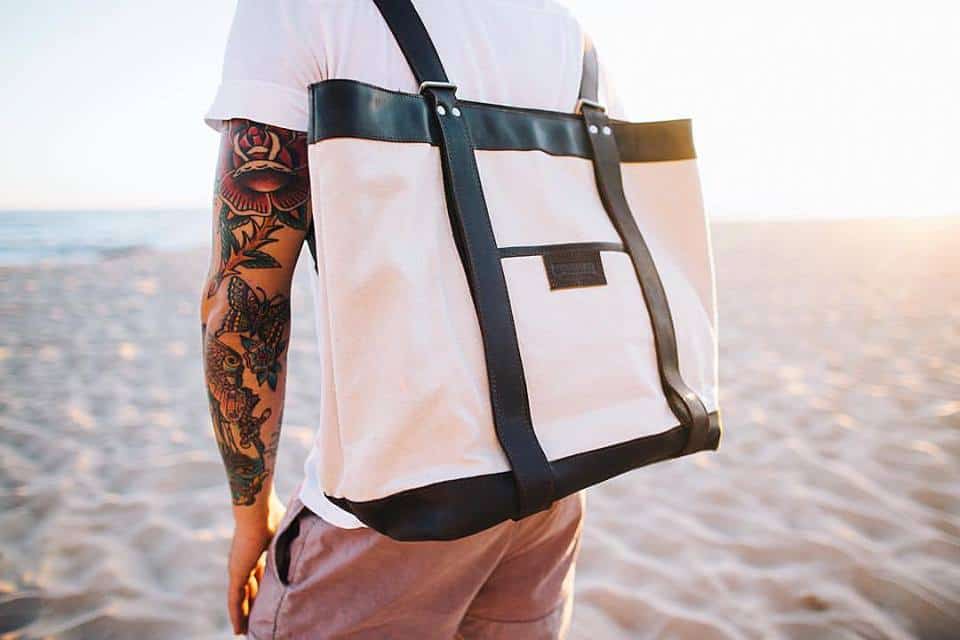
Q: Tell us about the Parker Clay production process.
A: Our Ethiopian Director, Henok, is a genius in leather production. He oversees the entire process, from ensuring quality and color of the leather we source from local tanneries to the entire in-shop production process and orchestrating shipments to our warehouse in California.
Our employees are skilled, certified artisans who perform the cutting, skiving, piecing, stitching, and finishing processes that transform pieces of leather into luxury products.
Some of our pieces have well over a hundred steps involved in the process and at every step we ensure that we are making a world class luxury product.
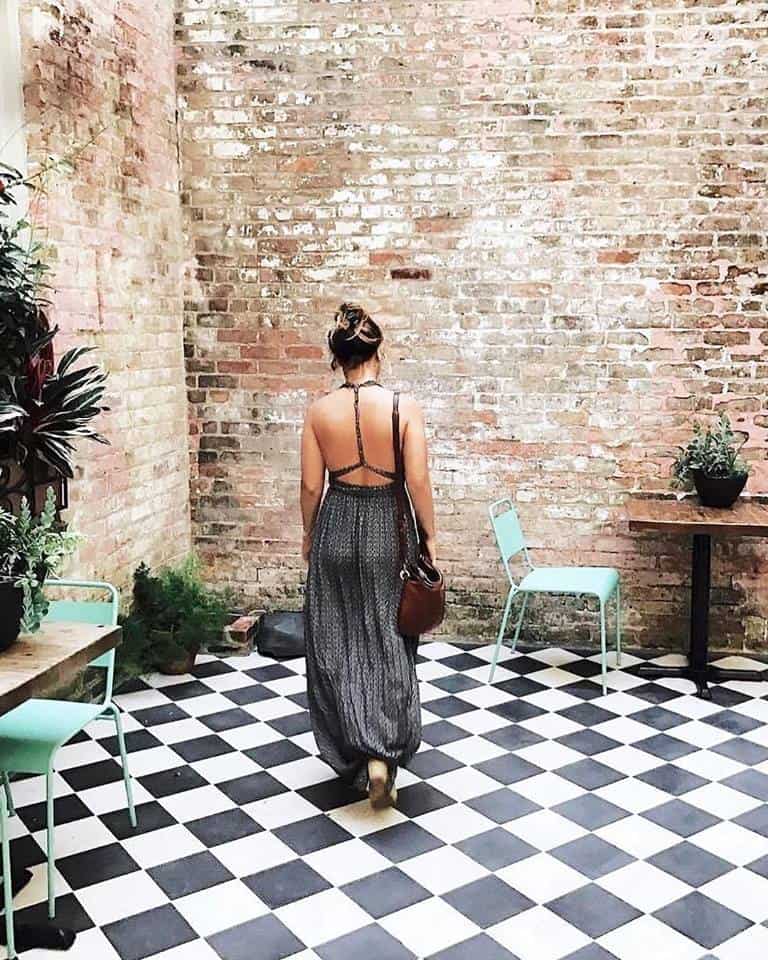
Q: What material do you use to create Parker Clay products?
A: Parker Clay products are made out of premium leather and hand-spun cotton.
Many people are initially surprised when we tell them we make luxury leather goods in Ethiopia, but to us, it makes total sense.
Many Italian leather products use leather sourced from Ethiopia, and so this leather, while lesser known to the American public, really is world-class.
We partner with two tanneries in Ethiopia, to source our leather, working closely with them to ensure top quality in beautiful, rich colors.
At both tanneries, they have given “Parker Clay” as the name for their best quality leather and we are continually pushing the limits of quality
Our cotton is hand spun and hand woven by the members of Ellilta Products, a company connected to the non-profit Ellilta-Women at Risk.
We believe in this non-profit that supports women coming out of the commercial sex industry. By purchasing woven goods from Ellilta, we support their artisans and programs for vulnerable women.
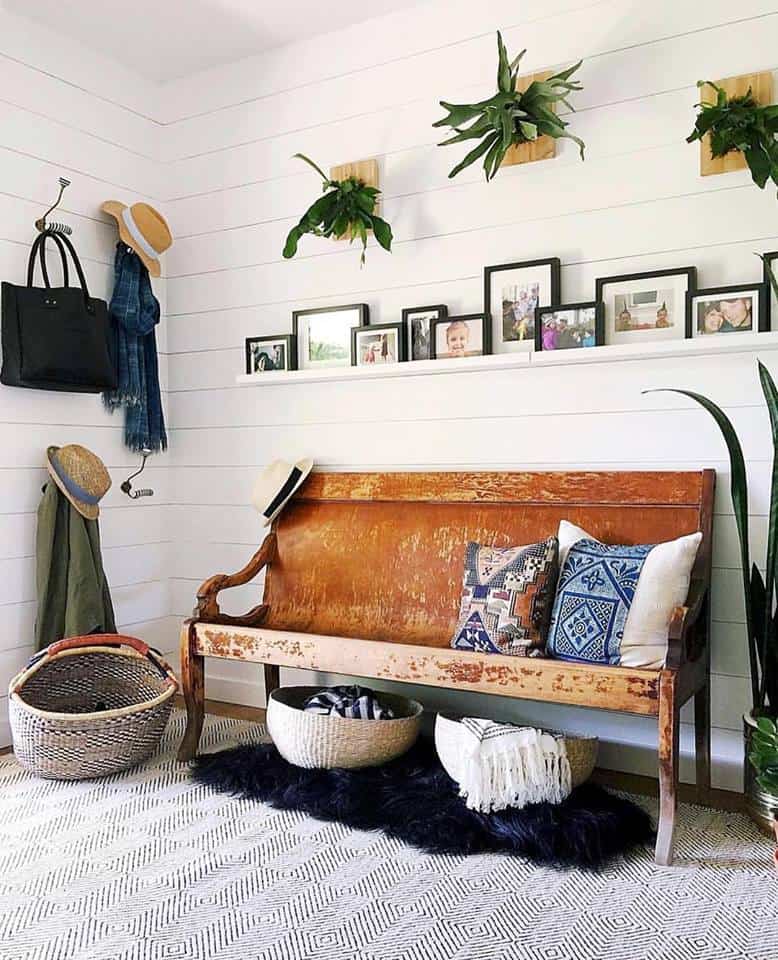
Q: Where do you see Parker Clay in the future?
A: While leaving Ethiopia and moving to the United States was a hard, but necessary, decision to address one of our daughter’s major medical issues, living stateside has allowed us to accelerate the growth of Parker Clay in a way that would have been almost impossible had we stayed in Addis Ababa.
This platform for sales growth is exciting for us, because the more products we sell the more people we’re able to employ in Ethiopia.
In the future, we’re looking to open more shops in cities across the US, growing our passionate American team while furthering the movement of social enterprises through various speaking events to share our story and inspire others.
In Ethiopia, we’re looking to expand our factory and double our staff immediately, envisioning that one day we’ll have multiple facilities and employ potentially hundreds of skilled leather artisans.
We’d also love to begin a training program to certify and employ women from Ellilta in our leather production process.
At the end of the day, we care deeply about how our products are made and who makes them. We refuse to compromise on relationship, community, or quality.
We craft luxury lifestyle goods by combining beautiful design with premium leather and handwoven textiles.
We are made in Ethiopia. That will never change, but we hope the scale and depth of our audience and impact will grow with us as we pursue our mission.
Podcast Interview Transcript
00:10
Host: Well, thank you so much for joining me today. This has been a long time coming. I’m so happy we finally get to do this. We’re going to walk people through the amazing journey of Parker Clay and sort of, you know, your journey as a family as well, and starting this brand and the impact it has. We’re going to go a lot of different ways, but let’s start maybe around the beginning, say around 2011, when you and your wife Brittany traveled to Ethiopia to adopt your daughter. That seemed to be the point where things got rolling. So if we want to start there, let’s do that.
00:44
Ian: Yeah, I would love to. And Grant, thanks for having me. I know you guys have been such great supporters and with us for a lot of the journey, which has been fun to go through it all together. It really started back, I would even say, way back when my wife and I met in high school. We were high school sweethearts, went to college together, got married while finishing up college in California, and started building our family. Our first two sons were Parker and Clay. Then we started talking about having a third, and that’s when the conversation of adoption came up. We read statistics like 160 million orphans in the world, which was hard to comprehend. But seeing my two sons, I thought, what if that was Parker? What if that was Clay? It changed my perspective in such a different way. That’s what grabbed our hearts, and even what we do today is about focusing on individuals rather than big statistics. It became personal.
We looked at different countries, even domestic adoption in the US, and landed on Ethiopia. In hindsight, it makes sense, but at the time it felt like the right place to be. In 2011, we got matched with a little girl, went to Ethiopia for the first time, and seeing the country, the beautiful people, and the incredible heart, it was different from the narrative we expected. It grabbed our attention beyond just adoption. We brought home this beautiful little girl back to California and kept asking, how do we get more involved? We started talking to different organizations, both nonprofits and for-profits, and asked, what’s needed? How can we have an impact? The honest answer was that people didn’t need handouts but opportunities.
We connected with a group helping women out of prostitution and trafficking, who needed jobs for these women. My wife and I thought, maybe we should move there. So, we sold everything, bought one-way tickets, and in 2012, moved our family to Ethiopia.
04:53
Host: And that was you, Parker, Clay, and your daughter Sayla, right? That was the family in 2012?
05:00
Ian: Exactly. At this point, an impact fashion brand wasn’t in the ethos yet. We went to work with these women to create skill sets, training, and opportunities for them. Living in Ethiopia, we saw a different narrative. In 2013, there was a factory collapse in Bangladesh called Rana Plaza, which woke up the world to the fast fashion movement. People were sacrificing their lives for fashion. We saw people in Ethiopia looking for meaningful jobs, wanting to create livelihoods for themselves.
We were always looking for something sustainable. There were other brands, like TOMS shoes, pioneering the space, but we questioned why we couldn’t build something appealing to the world that also took care of the people behind it. In 2013, for Brittany’s birthday, we found a leather bag at a small market. It had a made in Ethiopia tag with a phone number. We called, met the guy, and learned about the industry. There was a lot of leather in Ethiopia, with two massive shipping containers being sent to Italy. That was the lightbulb moment. We thought, we can create a premium product people love that also makes them feel good. That’s when Parker Clay was born. We started with a few designs, brought them back to California, showed friends, and people liked them.
09:56
Host: How did you come up with the name Parker Clay? Was it immediate or a struggle?
10:05
Ian: It was one night in Ethiopia. Power would go on and off sometimes. We stayed up all night sketching out names, probably had 100 names. We wrote Parker Clay in the middle, and it became an aha moment. The name was literally right in front of us, and it was meaningful, representing what moved us to adopt and move to Ethiopia.
10:59
Host: When you started getting products made, at what point did you start hiring women and putting processes in place for job creation? How did you build the impact ecosystem?
11:48
Ian: We were working with a nonprofit called Women at Risk, helping women out of serious life trauma. We observed that some women weren’t ready to be employed in that way, and some didn’t fit the industry. We partnered with the nonprofit, which did great work in counseling and rehabilitation, while we focused on training and employment. It’s important to harness the intersection of nonprofit and for-profit worlds. We started with a few employees from the nonprofit and a few others. Signing those first leases and getting space felt heavy, but we grew from a few employees to a couple hundred today.
15:03
Host: I’ve seen other founders partner with great nonprofits to build on top of the hard work they do. Kudos to you for recognizing that and building the next step for transition for individuals.
17:39
Ian: I completely agree. Do what you do really well and don’t try to do everything. Nonprofits can do some things much better, and we’ve found that partnership invaluable.
18:01
Host: Let’s talk about the business journey. You and Brittany didn’t have a background in this. How did you build the business brick by brick, day by day, year by year?
18:50
Ian: I love working with my wife, my business partner, and best friend. We started with ideas, made the first few products, and hired a few people. In 2015, our daughter Sayla had a brain tumor, which moved us back to California for her treatment. It was a difficult time, but it brought us back to the market and helped the business grow.
From 2015 to 2018, I worked two full-time jobs, real estate by day and Parker Clay by night. In 2018, we brought in angel investors, expanded our supply chain, and made bigger purchases.
We had great PR hits and celebrity endorsements, which helped us grow. Today, we have a large factory in Ethiopia with about 200 employees, 80% of whom are women. We provide training, certifications, savings programs, food programs, and more.
24:00
Host: How did COVID affect your business and family?
24:46
Ian: It was hard. We didn’t know what was happening and wanted to protect our team, especially those with immune challenges. We sent some people home with pay and put business continuity plans in place.
We didn’t lay anyone off; instead, we grew and produced masks for frontline workers in Ethiopia, which were honored by the government. COVID was stressful, but we navigated it creatively, working from my garage and coming up with campaigns like “We Go Together” to bring our community close and support each other. It was a special moment, and we’re proud of how we handled it.
29:24
Host: Scaling can be challenging. How do you maintain your impact as you grow?
30:48
Ian: Mission drift is a real concern. We’ve seen examples of companies starting with a mission but losing it as they scale. To avoid that, we became a B Corp and a public benefit corporation. These layers of accountability ensure we stay true to our mission. Consumers today are savvy and demand authenticity. At Parker Clay, our impact is at our core.
We’ve set safeguards and built a team that upholds our integrity. Scaling is hard, but it pushes us to innovate and find better solutions. The venture capital world can be scary, but we’re focused on creating a thriving, profitable business that prioritizes people.
36:16
Host: You’ve opened up investment to your customers and community. Tell us about that decision.
37:18
Ian: We’re excited about this community round, allowing anyone to invest in Parker Clay. Typically, at our stage, investment is limited to accredited investors and traditional VC rounds. But with the 2012 federal JOBS Act, we can open it up to the public. This is about community for us, allowing people who’ve supported us to become shareholders. It’s been a rigorous process, but we believe in democratizing investment and inviting everyone to be part of our journey.
40:21
Host: What does success look like for Parker Clay in the next five years?
40:45
Ian: We want to impact millions of lives, not just hundreds or thousands. We believe in the potential of Ethiopia and Africa. The leather goods industry is massive, and we see it continuing to grow, especially around conscious consumerism. We’re the largest manufacturer and exporter of finished leather goods from Ethiopia.
We’re talking to the Ethiopian government about opening up e-commerce for Africa, which is a huge opportunity. There’s a $42 billion funding gap for women entrepreneurs in Africa, and we want to bridge that gap and create more opportunities.
44:21
Host: That’s amazing. The potential for e-commerce in Africa is huge. I hope that collaboration continues. Thank you so much for taking the time, Ian. Best of luck to you and the team in the US and Ethiopia.
46:23
Ian: Thanks so much, Grant. It’s been great chatting. Look forward to talking more.







